Relationship Skills Teaching Resources
Help students build their relationship skills this school year with activities, games and more for your SEL lesson plans.
This collection of primary school teaching resources was created by the expert teachers of Teach Starter for teachers like you to help students build the skills they need to manage relationships with classmates and school staff, as well as those important friendships, family bonds and more out in the real world.
Set your students up for success with team-building activities that promote collaboration and provide opportunities for your students to work together, communicate effectively and solve problems as a team. Explore friendship activities that explore how to be a good friend. Browse printable games that teach students how to resolve conflicts with friends and teammates and a whole lot more.
Are you new to teaching relationship skills, or maybe you're just looking for fresh ideas to help your students manage relationships in your classroom and their lives? Read on for a primer from our teacher team!
What Are Relationship Skills?
We're going to start simple here, but bear with us! When it comes to teaching anything, it helps to step back and look at what's at the heart of the topic.
Relationship skills are the abilities and behaviours that enable our students (and ourselves!) to interact effectively with others, build and maintain positive relationships and navigate social situations successfully.
Simple enough, right? Like much of the SEL curriculum, there are a variety of 'skills' that are intertwined here, but these are the core concepts our teacher team considers part of relationship skills:
- Communication
- Friendship
- Empathy
- Cooperation
- Conflict resolution
- Problem-solving
Of course, these will tie back to other topics within SEL. For example, it takes social awareness to show empathy, and it takes decision-making skills to resolve conflict.
- Plus Plan
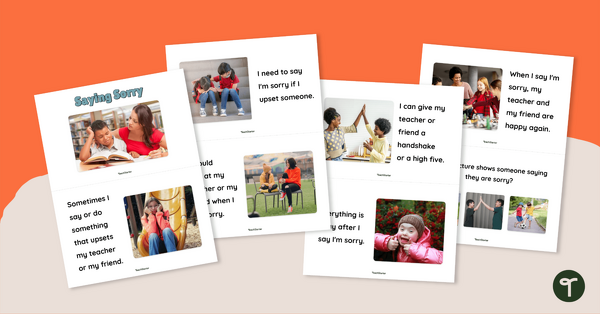
Saying Sorry Mini-Book
Learn strategies and skills for saying sorry and apologising to others with this printable mini-book.
- Plus Plan
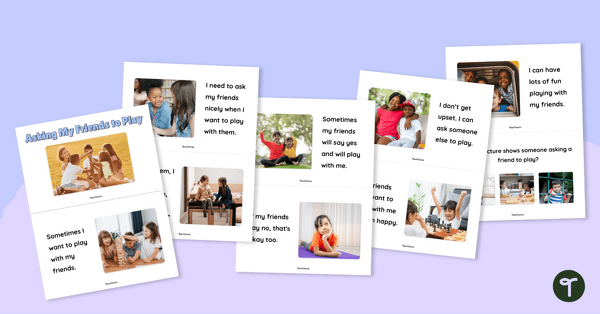
Asking My Friends to Play Mini-Book
Learn about appropriate social skills when asking friends to play with this printable mini-book.
- Plus Plan
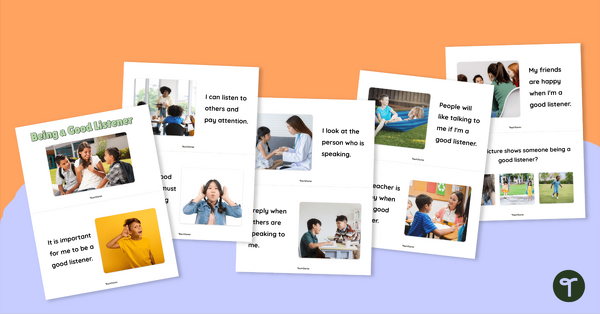
Being a Good Listener Mini-Book
Develop and reinforce appropriate listening skills with this printable social skills mini-book.
- Plus Plan
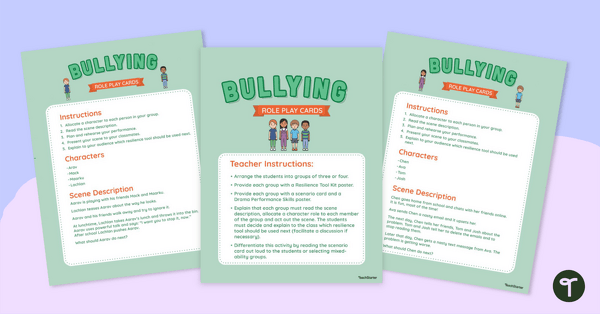
Bullying Role Play Cards
Equip students with anti-bullying strategies with printable role play cards that will help them recognise and respond to different types of bullying.
- Plus Plan
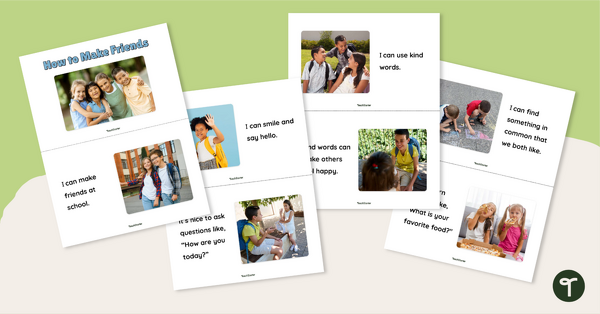
How to Make Friends Social Story
Learn the different ways you can make friends with this how to make friends social story.
- Plus Plan
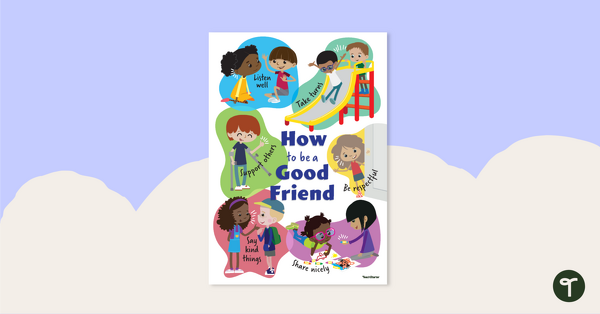
How to Be a Good Friend Poster
Use this poster to teach your students how to be a good friend to others.
- Plus Plan
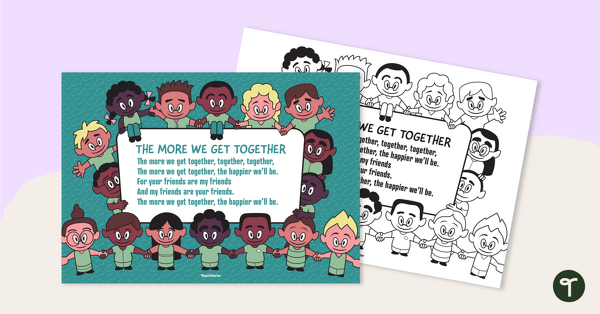
The More We Get Together Poster
Use “The More We Get Together” song to promote a sense of community and inclusivity in your classroom.
- Plus Plan
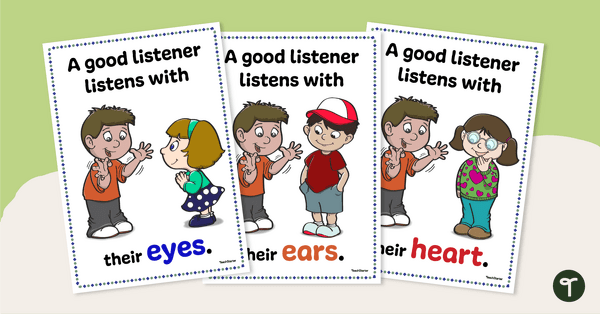
Good Listener Posters
Use this poster to teach your students how to be good listeners.
- Plus Plan
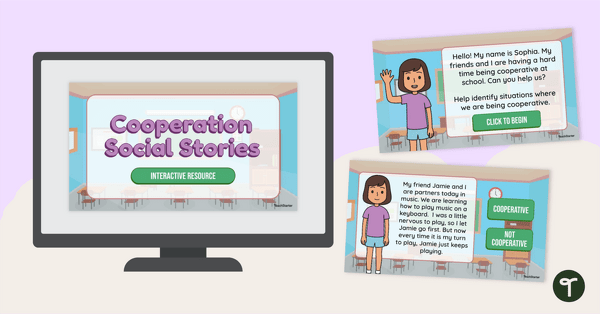
Cooperation Social Stories - Interactive Activity
Help your students differentiate between uncooperative and cooperative behaviour in social situations with an interactive activity.
- Plus Plan
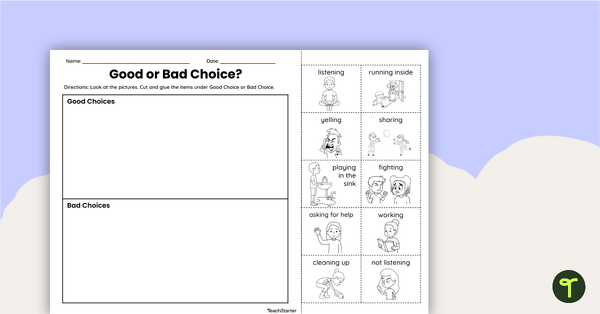
Good Choice or Bad Choice? Worksheet
Help your students differentiate between good and bad behaviour choices with a cut-and-paste worksheet.
- Plus Plan
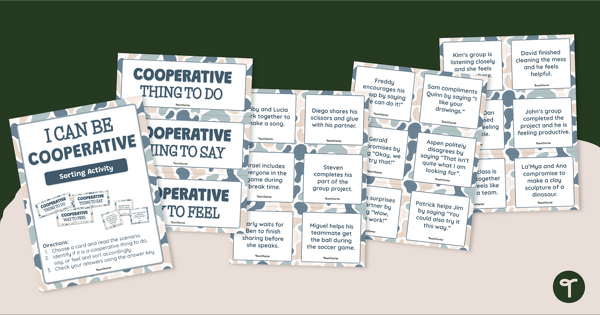
I Can Be Cooperative - Social Skills Sort
Practise personal and social skills to cooperate and interact respectfully with others with an engaging sorting activity.
- Plus Plan
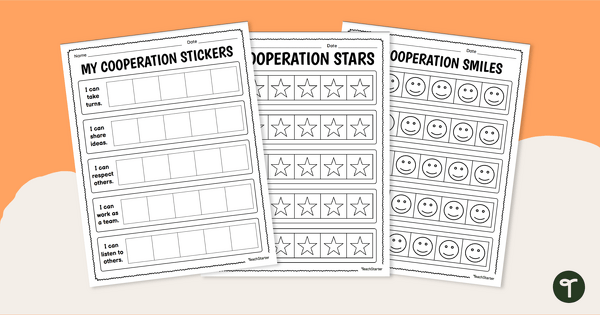
My Cooperation Sticker Chart
Promote and reward cooperative behaviour with a pack of printable cooperation sticker charts.
- Plus Plan
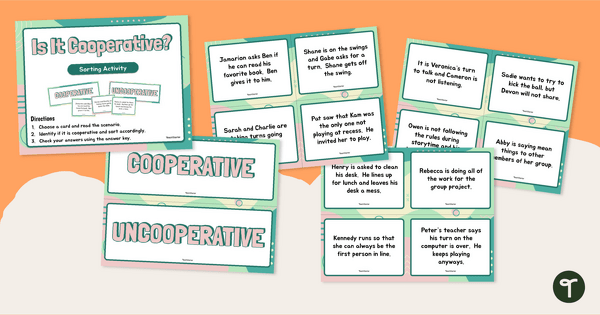
Is It Cooperative? Sorting Activity
Explore the difference between cooperative and non-cooperative behaviour with a sorting activity.
- Plus Plan
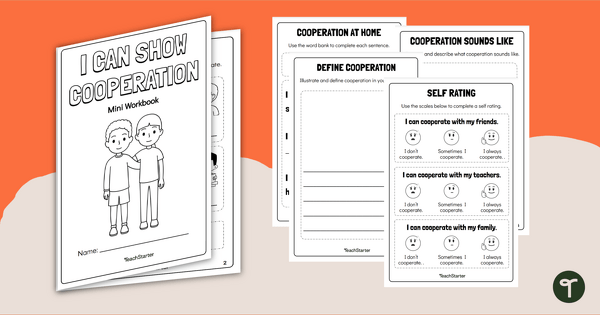
I Can Show Cooperation Mini Workbook
Help your students understand ways to show cooperation with a printable mini workbook.
- Plus Plan
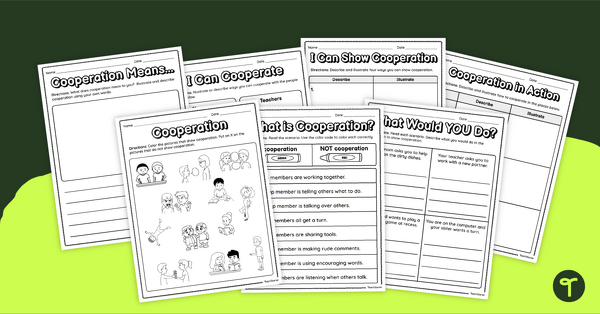
Social Skills Lessons - Cooperation Worksheets
Teach social skills lessons on cooperation with a set of printable SEL worksheets.
- Free Plan
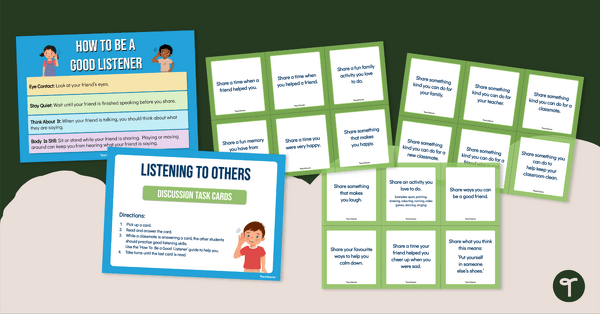
Listening to Others – Discussion Task Cards and Poster
Give students the opportunity to work on their listening skills and learn what it means to be a good listener with this set of 42 discussion cards and classroom poster.
- Plus Plan
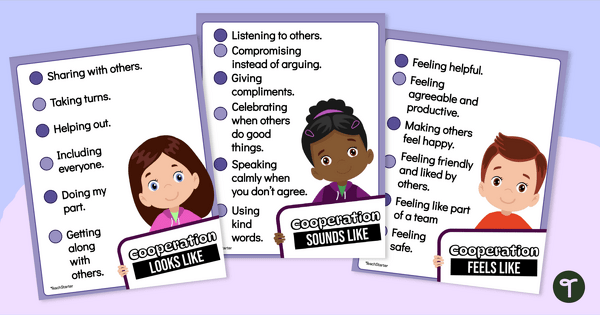
Looks Like, Sounds Like, Feels Like - Cooperation Anchor Charts
Teach your students what cooperation looks, feels, and sounds like with a set of printable posters.
- Plus Plan
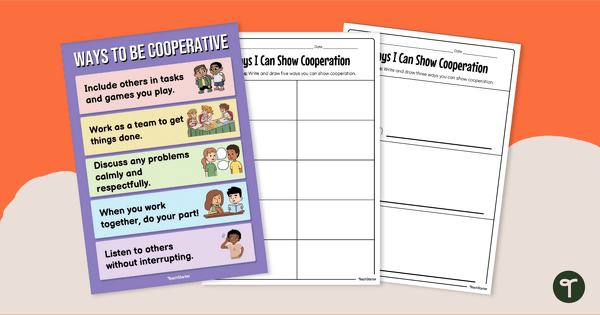
Ways to Show Cooperation Poster and Worksheet
Learn ways to show cooperation with a printable poster and accompanying worksheet pack.
- Plus Plan
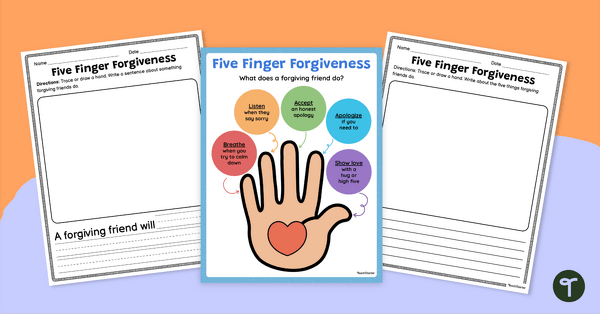
Five Finger Forgiveness – Poster and Writing Activity
Teach your students how to forgive others in order to keep and maintain relationships with this poster and writing prompt.
- Plus Plan
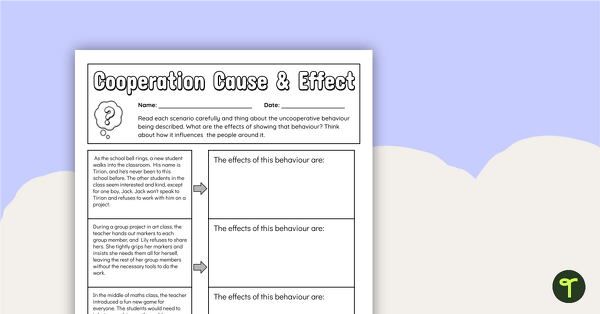
Cooperation Cause and Effect Worksheet
Discover the effects of uncooperative behaviour with a cause-and-effect worksheet.
- Plus Plan
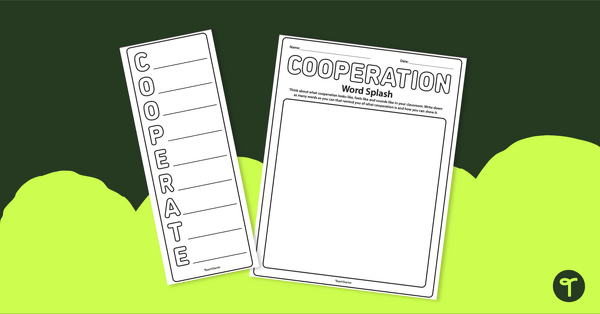
Cooperation Word Splash and Acrostic Poem
Discuss cooperation with your students and write an acrostic poem wih a printable word splash worksheet and poem template.
- Plus Plan
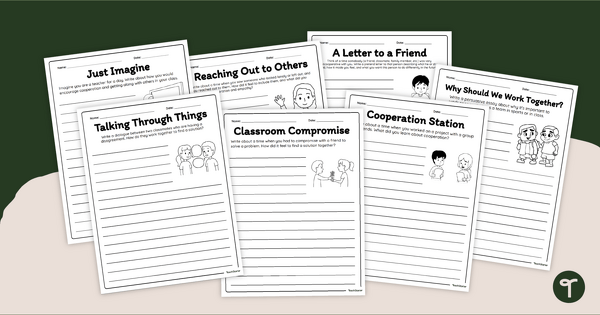
What is Cooperation? - Social Emotional Writing Prompts
Teach your students about cooperative and non-cooperative behaviours with a set of ten writing prompt worksheets.
- Plus Plan
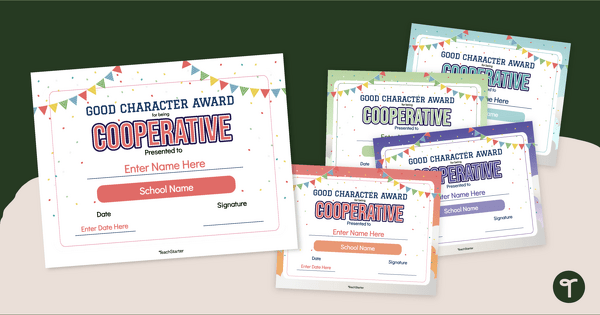
Cooperation Certificate - Good Character Award Template
Celebrate your students' cooperative behaviour by awarding them a personalized Cooperation Award.
- Plus Plan
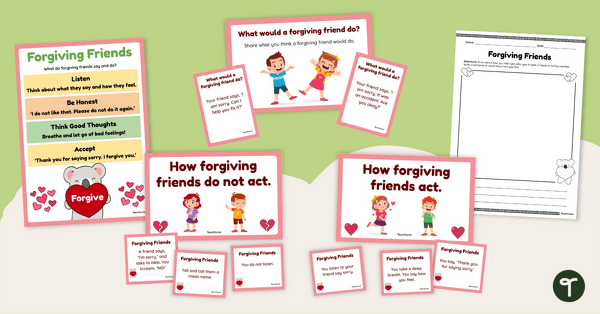
Forgiving Friends – Social Emotional Learning Activities
Use these social emotional learning activities to encourage students to maintain and repair friendships by forgiving others.
- Plus Plan
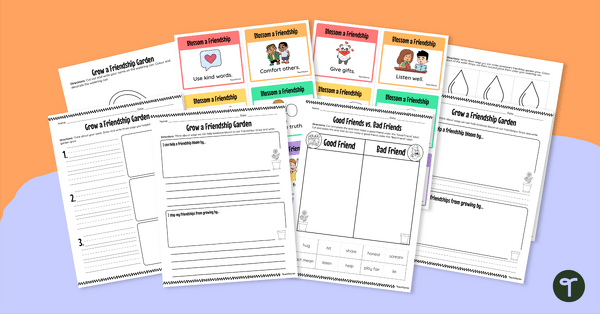
Grow a Friendship Garden – Friendship Activities
Encourage students to make a friendship garden grow with this activity bundle that includes friendship worksheets, writing templates, craft templates and scenario cards.
- Plus Plan
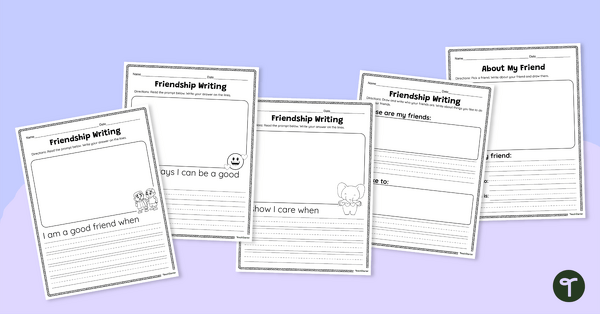
Friendship Writing Prompts
Encourage positive relationships by using our friendship writing prompts in your classroom.
- Plus Plan
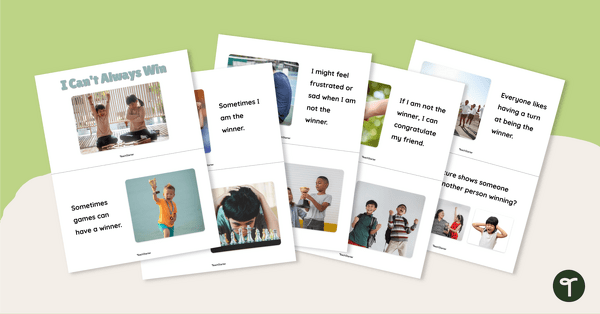
I Can't Always Win Mini-Book
Teach your students to cope when they are not the winner with this social story mini-book.